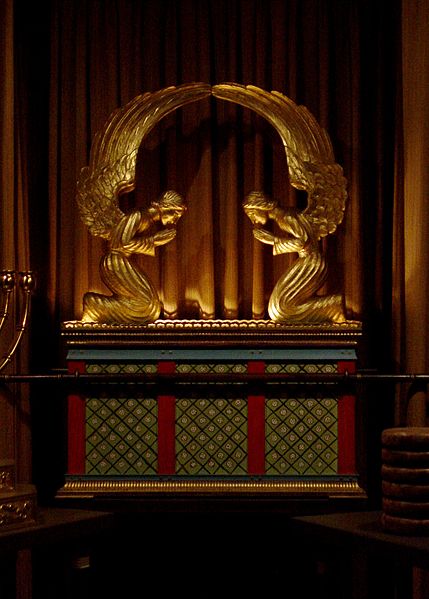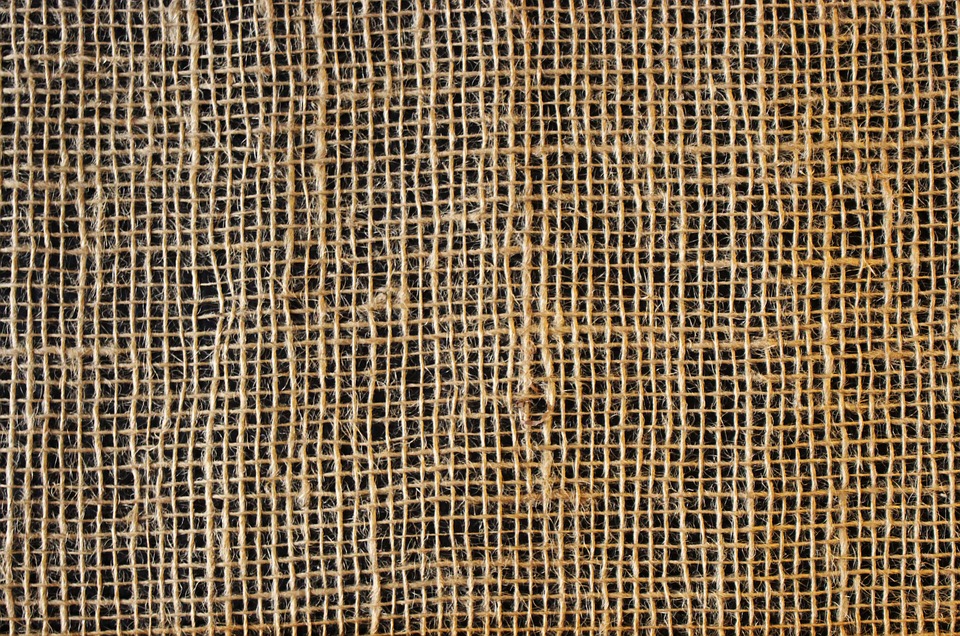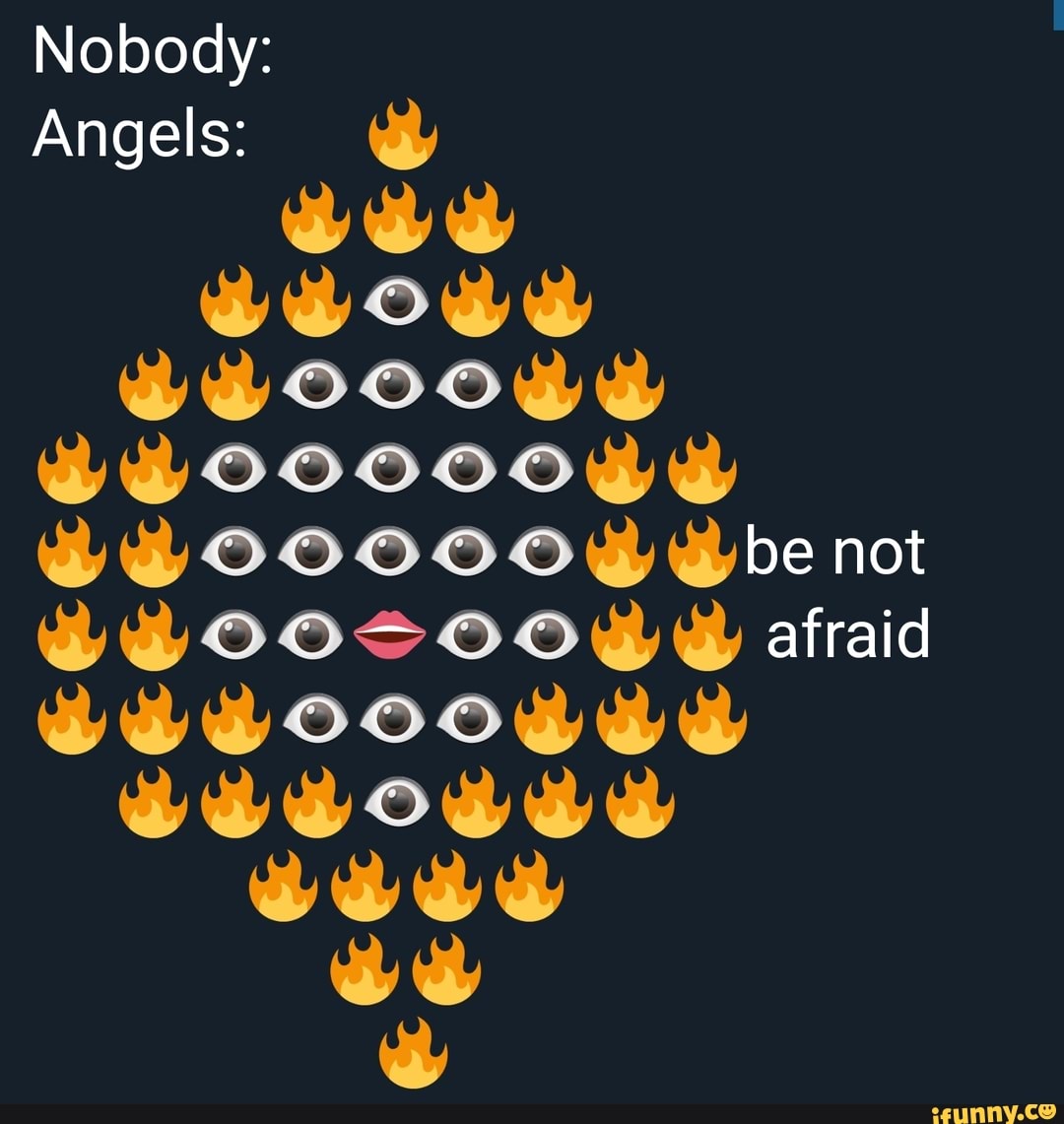Wednesday, November 2, 2022
Queerying All Saints C
Who is waiting to dance with you?
How does God transform hearts?
How do you experience God in difficult times?
Where is the tension between legacies you carry and Christ's promises?
How are we susceptible to the normalization of oppression?
-----
River Needham, MA ThM queeries the Tanakh reading.
Tanakh: Daniel 7:1-3,--(4-14)--15-18
In the first year of King Belshazzar of Babylon, Daniel saw a dream and a vision of his mind in bed; afterward he wrote down the dream. Beginning the account, Daniel related the following:
“In my vision at night, I saw the four winds of heaven stirring up the great sea. Four mighty beasts different from each other emerged from the sea.
--
The first was like a lion but had eagles’ wings. As I looked on, its wings were plucked off, and it was lifted off the ground and set on its feet like a human and given the mind of a human. Then I saw a second, different beast, which was like a bear but raised on one side, and with three fangs in its mouth among its teeth; it was told, ‘Arise, eat much meat!’ After that, as I looked on, there was another one, like a leopard, and it had on its back four wings like those of a bird; the beast had four heads, and dominion was given to it.
After that, as I looked on in the night vision, there was a fourth beast—fearsome, dreadful, and very powerful, with great iron teeth—that devoured and crushed, and stamped the remains with its feet. It was different from all the other beasts which had gone before it; and it had ten horns. While I was gazing upon these horns, a new little horn sprouted up among them; three of the older horns were uprooted to make room for it. There were eyes in this horn like those of a human, and a mouth that spoke arrogantly.
As I looked on, thrones were set in place, and the Ancient of Days took Xyr seat. Xyr garment was like glittering snow, and the hair of Xyr head was like lamb’s wool. Xyr throne was tongues of flame; its wheels were blazing fire. A river of fire streamed forth before Xym; thousands upon thousands served Xym; myriads upon myriads attended Xym; the court sat and the books were opened.
I looked on. Then, because of the arrogant words that the horn spoke, the beast was killed as I looked on; its body was destroyed and it was consigned to the flames. The dominion of the other beasts was taken away, but an extension of life was given to them for a time and season.
As I looked on, in the night vision, one like a human being came with the clouds of heaven; she reached the Ancient of Days and was presented to Xyr. Dominion, glory, and kingship were given to her; all peoples and nations of every language must serve her. Her dominion is an everlasting dominion that shall not pass away, and her kingship, one that shall not be destroyed.
--
As for me, Daniel, my spirit was disturbed within me and the vision of my mind alarmed me. I approached one of the attendants and asked her the true meaning of all this. She gave me this interpretation of the matter:
‘These great beasts, four in number mean four empires will arise out of the earth; then holy ones of the Most High will receive the empire, and will possess the empire forever—forever and ever.’
Queeries for the text:
What brought about this vision?
Who are the four empires?
What beasts are arrogant and need to be killed?
How does snow glitter?
Who was the Ancient of Days?
How was Daniel's mind alarmed?
-----
Rev. Emily E. Ewing queeries the Gospel reading.
Gospel: Luke 6:20-31
20Then Jesus looked up at his chosen family and said: “Blessed are you who are poor, for yours is the reign of God.
21“Blessed are you who are hungry now, for you will be filled.
“Blessed are you who weep now, for you will laugh.
22“Blessed are you when people hate you, and when they exclude you, revile you, and defame you on account of the Human One. 23Rejoice in that day and leap for joy, for surely your reward is great in heaven; for that is what their ancestors did to the prophets.
24“But woe to you who are rich, for you have received your consolation.
25“Woe to you who are full now, for you will be hungry.
“Woe to you who are laughing now, for you will mourn and weep.
26“Woe to you when all speak well of you, for that is what their ancestors did to the false prophets.
27“But I say to you that listen, Love your enemies, do good to those who hate you, 28bless those who curse you, pray for those who abuse you. 29If anyone strikes you on the cheek, offer the other also; and from anyone who takes away your coat do not withhold even your shirt. 30Give to everyone who begs from you; and if anyone takes away your goods, do not ask for them again. 31Do to others as you would have them do to you.
Queeries for the text:
Where are there false binaries?
How is being harmed a blessing?!
Who excludes, reviles, and defames others in Jesus' name?
Who is rich, full, and laughing?
Who is spoken well of?
How do we bless and pray for those who harm?
What happens when you strike the other cheek?
What happens when you're naked?
What if others want you to do differently?
What are your queeries?
Wednesday, September 21, 2022
Queerying 16th after Pentecost C
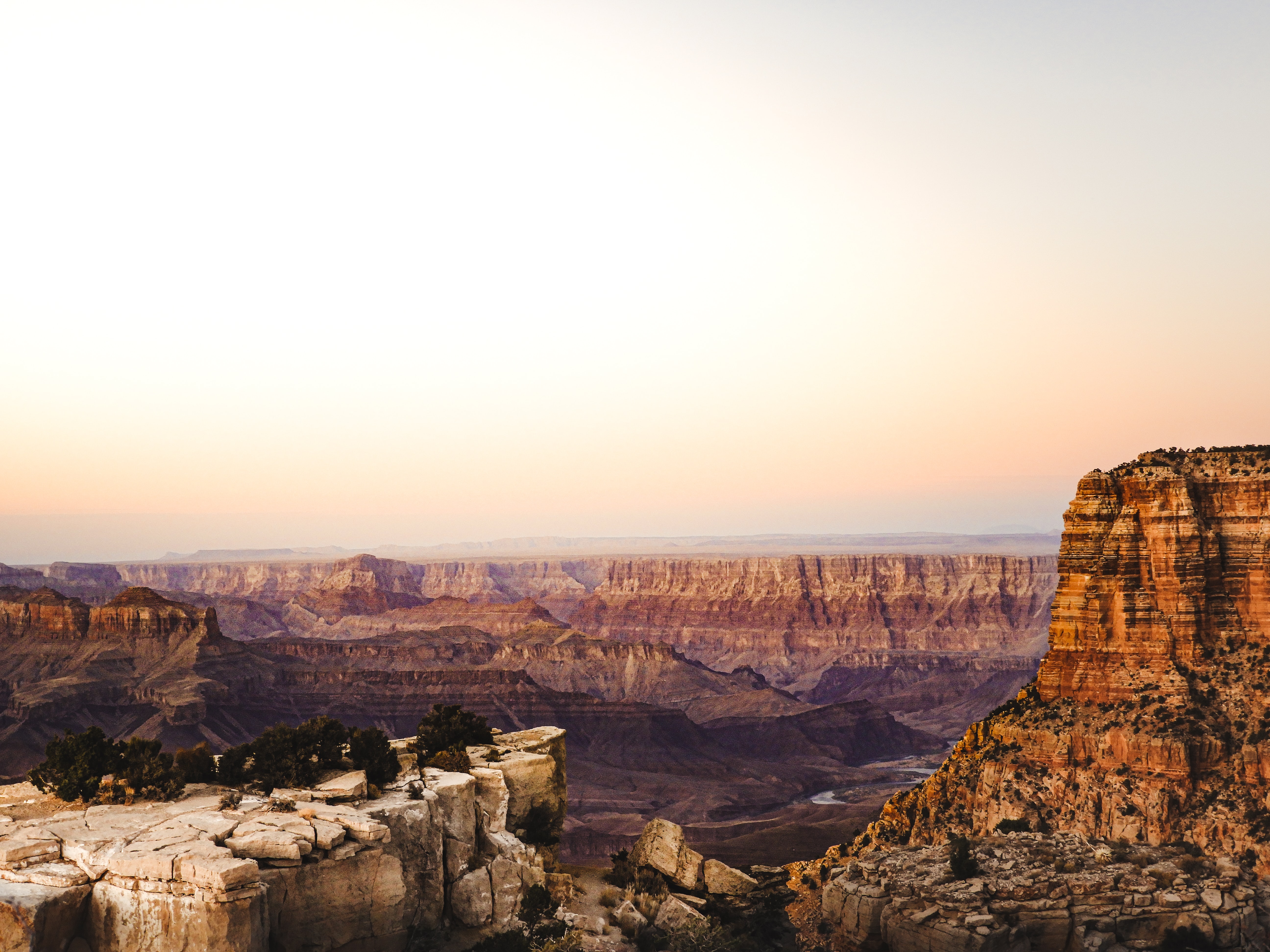 Suzannah Porter and Brooke McLain musically queery the RCL readings.
Suzannah Porter and Brooke McLain musically queery the RCL readings.What have you learned about trusting in God through trials and tribulations?
In whom as God shown up when you have faced turbulence?
What treasures do we store up when we set our hopes on God?
How does God invite us to join in flipping the script?
-----
River Needham, MA ThM queeries the Tanakh reading.
Tanakh: Jeremiah 32:1-3a, 6-15
The word which came to Jeremiah from the Becoming One in the tenth year of King Zedekiah of Judah, which was the eighteenth year of Nebuchadrezzar. At that time the army of the king of Babylon was besieging Jerusalem, and the prophet Jeremiah was confined in the prison compound attached to the palace of the king of Judah.For King Zedekiah of Judah had confined him, saying, “How dare you prophesy."
[...]
Jeremiah said: The word of the Becoming One came to me:
Hanamel, the son of your uncle Shallum, will come to you and say, “Buy my land in Anathoth, for you are next in succession to redeem it by purchase.”
And just as the Becoming One said, my cousin Hanamel came to me in the prison compound and said to me, “Please buy my land in Anathoth, in the territory of Benjamin; for the right of succession is yours, and you have the duty of redemption. Buy it.”
Then I knew that it was indeed the word of the Becoming One. So I bought the land in Anathoth from my cousin Hanamel. I weighed out the money to him, seventeen shekels of silver. I wrote a deed, sealed it, and had it witnessed; and I weighed out the silver on a balance. I took the deed of purchase, the sealed text and the open one according to rule and law, and gave the deed to Baruch son of Neriah son of Mahseiah in the presence of my kindred Hanamel, of the witnesses who were named in the deed, and all the Judeans who were sitting in the prison compound.
In their presence I charged Baruch as follows:
Thus said the The Becoming One, ruler of angel armies, the God of Israel: “Take these documents, this deed of purchase, the sealed text and the open one, and put them into an earthen jar, so that they may last a long time.” For thus said the Becoming One, Ruler of angel armies, the God of Israel: “Houses, fields, and vineyards shall again be purchased in this land.”
Queeries for the text:
Who is stuck in the prison compound?
What is missing from this passage?
How do we value land?
How do we redeem?
What does it mean to be a kindred?
-----
Rev. Emily E. Ewing queeries the Gospel reading.
Gospel: Luke 16:19-31
Jesus said:
19“There was a rich man who was dressed in purple and fine linen and who feasted sumptuously every day. 20And at his gate lay a poor man named Lazarus, covered with sores, 21who longed to satisfy his hunger with what fell from the rich man’s table; even the dogs would come and lick his sores. 22The poor man died and was carried away by the angels to be with Abraham. The rich man also died and was buried.
23In Hades, where the no-longer-rich, dead man was being tormented, he looked up and saw Abraham far away with Lazarus by his side. 24He called out, ‘Daddy Abraham, have mercy on me, and send Lazarus to dip the tip of his finger in water and cool my tongue; for I am in agony in these flames.’
25But Abraham said, ‘Little one, remember that during your lifetime you received your good things, and Lazarus in like manner evil things; but now he is comforted here, and you are in agony. 26Besides all this, between you and us a grand canyon has been fixed, so that those who might want to pass from here to you cannot do so, and no one can cross from there to us.’
27He said, ‘Then, Daddy, I beg you to send him to my Papa’s house— 28for I have five brothers—that he may serve me and warn them, so that they will not also come into this place of torment.’
29Abraham replied, ‘They have Moses and the prophets; they should listen to them.’
30He said, ‘No, Daddy Abraham; but if someone goes to them from the dead, they will repent.’
31Abraham said to him, ‘If they do not listen to Moses and the prophets, neither will they be convinced even if someone rises from the dead.’”
Queeries for the text:
What did we skip? How can it be good to skip?
Why is purple so special?
Who receives scraps from the table?
How do dogs comfort and heal?
How does the rich man's contempt continue after death?
How does God flip the script?
Where are grand canyons today?
What would startle you into repentance?
What are your queeries?
Wednesday, September 7, 2022
Queerying 14th after Pentecost C
 Suzannah Porter and Brooke McLain musically queery the RCL readings.
Suzannah Porter and Brooke McLain musically queery the RCL readings. What do you pray for the wind of God to blow through and sweep away?
What are we running from when we engage in sin?
How does God's mercy released you from regrets?
How is God protecting you and searching for you, even in your lostness, waiting for you to come home?
-----
River Needham, MA ThM queeries the Tanakh reading.
Tanakh: Jeremiah 4:11-12, 22-28
At that time, it shall be said concerning this people and Jerusalem:
The conduct of My poor people is like searing wind
from the bare heights of the desert—
it will not serve to winnow or to fan.
A full blast from them comes against Me:
now I in turn will bring charges against them.
[...]
For My people are willfully ignorant,
they give Me no heed;
they are foolish children,
they are not intelligent.
They are clever at doing wrong,
but unable to do right.
I look at the earth,
it is unformed and void;
at the skies,
and their light is gone.
I look at the mountains,
they are quaking;
and all the hills are rocking.
I look: no human is left,
and all the birds of the sky have fled.
I look: the farm land is desert,
and all its towns are in ruin—
because of the Becoming One,
because of Xyr blazing anger.
For thus said the Becoming One:
the whole land shall be desolate,
but I will not make an end of it.
For this the earth mourns,
and skies are dark above—
because I have spoken, I have planned,
and I will not relent or turn back from it.
Queeries for the text:
What is missing from this pericope?
What slurs can we eradicate from our language?
When else was the Earth unformed and void?
Who suffers when mountains quake?
What might the end of humanity look like?
Why won't the Becoming One relent or turn Xyr back from desolation?
-----
Rev. Emily E. Ewing queeries the Gospel reading.
Gospel: Luke 15:1-10
Now all the tax collectors and sinners were coming near to listen to Jesus. 2And the religious leaders were grumbling and saying, “This fellow welcomes sinners and eats with them.”
3So Jesus told them this parable: 4“Which one of you, having a hundred sheep and losing one of them, does not leave the ninety-nine in the wilderness and go after the one that is lost until you find it? 5When you have found it, you lay it on your shoulders and rejoice. 6And when you come home, you call together your friends and neighbors, saying to them, ‘Rejoice with me, for I have found my sheep that was lost.’ 7Just so, I tell you, there will be more joy in heaven over one sinner who repents than over ninety-nine righteous persons who need no repentance.
8“Or what woman having ten silver coins, a daily wage each, if she loses one of them, does not light a lamp, sweep the house, and search carefully until she finds it? 9When she has found it, she calls together her gal pals, saying, ‘Rejoice with me, for I have found the coin that I had lost.’ 10Just so, I tell you, there is joy in the presence of the angels of God over one sinner who repents.”
Queeries for the text:
What did we skip?
What did tax collectors do?
Who are "sinners"?
Who grumbles today?
What would shepherds do?
How do we rejoice with others?
Which sheep repented? Which coin?
What prompts you to clean the house?
Who repents?
What are your queeries?
Tuesday, October 19, 2021
Queerying 22nd after Pentecost B
 River Needham, MA ThM queeries the Tanakh reading.
River Needham, MA ThM queeries the Tanakh reading.Tanakh: Job 42:1-6, 10-17
Job said in reply to the Becoming One:
I know that You can do everything,
That nothing You propose is impossible for You.
Who is this who obscures counsel without knowledge?
Indeed, I spoke without understanding
Of things beyond me, which I did not know.
Hear now, and I will speak;
I will ask, and You will inform me.
I had heard You with my ears,
But now I see You with my eyes;
Therefore, I recant and relent,
Being but dust and ashes.
[...]
The Becoming One restored Job’s fortunes when he prayed on behalf of his friends, and the Becoming One gave Job twice what he had before. All his brothers and sisters and all his former friends came to him and had a meal with him in his house. They consoled and comforted him for all the misfortune that the Becoming One had brought upon him. Each gave him some money and each one gold ring. Thus the Becoming One blessed the latter years of Job’s life more than the former. He had fourteen thousand sheep, six thousand camels, one thousand yoke of oxen, and one thousand she-asses. He also had seven sons and three daughters. The first he named Jemimah, the second Keziah, and the third Keren-happuch. Nowhere in the land were women as beautiful as Job’s daughters to be found. Their father gave them estates together with their brothers. Afterward, Job lived one hundred and forty years to see four generations of children and grandchildren. So Job died old and contented.
Queeries for the text:
What is missing from this text?
If nothing is impossible, what is possible?
What does it mean to be dust and ashes?
How much money did they give? What does the book of Job say about suffering?
Why is Job's Daughter's appearances important?
-----
Rev. Emily E. Ewing queeries the Gospel reading.
Gospel: Mark 10:46-52
46They came to Jericho. As Jesus and his chosen family and a large crowd were leaving Jericho, Bartimaeus son of Timaeus, a blind beggar, was sitting by the roadside. 47When Bartimaeus heard that it was Jesus of Nazareth, he began to shout out and say, “Jesus, Descendant of David, have mercy on me!”
48Many sternly ordered Bartimaeus to be quiet, but he cried out even more loudly, “Descendant of David, have mercy on me!”
49Jesus stood still and said, “Call that one here.”
And they called the blind one, saying to Bartimaeus, “Take heart; get up, he is calling you.”
50So throwing off his cloak, he sprang up and came to Jesus.
51Then Jesus said to Bartimaeus, “What do you want me to do for you?”
The blind one said to Jesus, “My teacher, let me see again.”
52Jesus said to him, “Go; your faith has made you well.” Immediately Bartimaeus regained his sight and followed Jesus on the way.
Queeries for the text:
What else happened in Jericho?
Why is Jesus named the Descendant of David?
Who do we order to be quiet?
What do we throw off to encounter Jesus?
Why did Jesus ask Bartimaeus what he wanted?
What makes us well?
What are your queeries?
Tuesday, September 28, 2021
Queerying 19th after Pentecost B
 River Needham, MA ThM queeries the Tanakh reading.
River Needham, MA ThM queeries the Tanakh reading.Tanakh: Job 1:1, 2:1-10
There was a man in the land of Uz named Job. That man was blameless and upright; he feared God and shunned evil.
[...]
One day the divine beings presented themselves before the Becoming One. The Adversary came along with them to present himself before the Becoming One. The Becoming One said to the Adversary, “Where have you been?”
The Adversary answered the Becoming One, “I have been roaming all over the earth.”
The Becoming One said to the Adversary, “Have you noticed My servant Job? There is no one like him on earth, a blameless and upright man who fears God and shuns evil. He still keeps his integrity; so you have incited me against him to destroy him for no good reason.”
The Adversary answered the Becomig One, "Skin for skin—all that a human man has he will give up for his life. But lay a hand on his bones and his flesh, and he will surely blaspheme You to Your face.”
So the Becoming One said to the Adversary, “See, Job is in your power; only spare his life.”
The Adversary departed from the presence of the Becomig One and inflicted a severe inflammation on Job from the sole of his foot to the crown of his head. He took a potsherd to scratch himself as he sat in ashes.
His wife said to him, “You still keep your integrity! Blaspheme God and die!”
But he said to her, “You talk as any shameless woman might talk! Should we accept only good from God and not accept evil?” For all that, Job said nothing sinful.
Queeries for the text:
What is missing from the text?
How is theodicy apparent?
What does shameless mean?
Where else is shameless used in the Tanakh?
How is shameless a good thing?
How is this text problematic?
-----
Rev. Emily E. Ewing queeries the Gospel reading.
Gospel: Mark 10:2-16
2Some religious authorities came, and to test Jesus they asked, “Is it lawful for a man to divorce his wife?”
3Jesus answered them, “What did Moses command you?”
4They said, “Moses allowed a human man to write a certificate of dismissal and to divorce her.”
5But Jesus said to them, “Because of your hardness of heart Moses wrote this commandment for you. 6But from the beginning of creation, ‘God made humanity with many and no genders.’ 7‘For this reason a person shall leave their parents and be joined to their spouse, 8and they shall become one flesh.’ So they are no longer distinct persons, but one flesh. 9Therefore what God has joined together, let no one separate.”
10Then in the house the disciples asked Jesus again about this matter. 11He said to them, “Whichever husband divorces his wife and marries another commits adultery against her; 12and if a woman divorces her husband and marries another, she commits adultery.”
13People were bringing little children to Jesus in order that he might touch them; and the disciples spoke sternly to them. 14But when Jesus saw this, he was indignant and said to them, “Let the little children come to me; do not stop them; for it is to such as these that the reign of God belongs. 15Truly I tell you, whoever does not receive the reign of God like a little child will never enter it.” 16And Jesus took them up in his arms, laid his hands on them, and blessed them.
Queeries for the text:
Where were they?
Why do we test Jesus?
What's the difference between what is lawful and what is right?
Where is the power?
What happens with divorce?
What counts as adultery? What doesn't?
How do children receive the reign of God?
How have children been discarded?
What are your queeries?
Thursday, September 2, 2021
Queerying 15th after Pentecost B
Tanakh: Proverbs 22:1-2, 8-9, 22-23
Repute is preferable to great wealth,
Grace is better than silver and gold.
Rich human and poor human meet;
The Becoming One made them both.
[...]
The one who sows injustice shall reap misfortune;
Their rod of wrath shall fail.
The generous one is blessed,
For she gives of her bread to the poor.
[...]
Do not rob the wretched because ze is wretched;
Do not crush the poor human in the gate;
For the Becoming One will take up their cause
And despoil those who despoil them of life.
Queeries for the text:
What is missing? Why?
What is grace?
When will the rich and poor meet?
What does it mean to give bread to the poor?
Who are the poor and wretched?
What gates are crushing the poor?
What does it mean to despoil of life?
-----
Rev. Emily E. Ewing queeries the Gospel reading.
Gospel: Mark 7:24-37
24From there Jesus set out and went away to the region of Tyre. He entered a house and did not want anyone to know he was there. Yet he could not escape notice, 25but a woman whose little daughter had an unclean spirit immediately heard about Jesus, and she came and bowed down at his feet. 26Now the woman was a Gentile, of Syrophoenician origin. She begged him to cast the demon out of her daughter. 27Jesus said to her, “Let the children be fed first, for it is not fair to take the children’s food and throw it to the dogs.”
28But she answered Jesus, “Your Honor, even the dogs under the table eat the children’s crumbs.”
29Then Jesus said to her, “For saying that, you may go—the demon has left your daughter.” 30So she went home, found the child lying on the bed, and the demon gone.
31Then Jesus returned from the region of Tyre, and went by way of Sidon towards the Sea of Galilee, in the region of the Decapolis. 32The crowd brought to Jesus a deaf man who had an impediment in his speech; and they begged him to lay his hand on him. 33Jesus took the man aside in private, away from the crowd, and put his fingers into his ears, and he spat and touched his tongue. 34Then looking up to heaven, he sighed and said to him, “Ephphatha,” that is, “Be opened.” 35And immediately his ears were opened, his tongue was released, and he spoke plainly.
36Then Jesus ordered them to tell no one; but the more he ordered them, the more zealously they proclaimed it. 37They were astounded beyond measure, saying, “Jesus has done everything well; he even makes the deaf to hear and the mute to speak.”
Queeries for the text:
Who else cannot escape notice?
Who are syrophoenicians?
Who else are dogs?
Who bests whom in this battle of wits?
Who brought the deaf man to Jesus?
When do we need privacy?
When do we respond with challenge?
How is society responsible for ableism?
Who is stuck with crumbs today?
What are your queeries?
Thursday, August 19, 2021
Queerying 13th after Pentecost B
 River Needham, MA ThM queeries the Tanakh reading.
River Needham, MA ThM queeries the Tanakh reading.Tanakh: 1 Kings 8:22-30, 41-43
Then Solomon stood before the altar of the Becoming One in the presence of the whole community of Israel; he spread the palms of his hands toward heaven and said, “O Becoming God of Israel, in the heavens above and on the earth below there is no god like You, who keep Your gracious covenant with Your servants when they walk before You in wholehearted devotion; You who have kept the promises You made to Your servant, my father David, fulfilling with deeds the promise You made—as is now the case. And now, O Becoming God of Israel, keep the further promise that You made to Your servant, my father David: ‘Your line on the throne of Israel shall never end, if only your descendants will look to their way and walk before Me as you have walked before Me.’ Now, therefore, O God of Israel, let the promise that You made to Your servant my father David be fulfilled.
“But will God really dwell on earth? Even the heavens to their uttermost reaches cannot contain You, how much less this House that I have built! Yet turn, O Becoming One my God, to the prayer and supplication of Your servant, and hear the cry and prayer which Your servant offers before You this day. May Your eyes be open day and night toward this House, toward the place of which You have said, ‘My name shall abide there’; may You heed the prayers which Your servant will offer toward this place. And when You hear the supplications which Your servant and Your people Israel offer toward this place, give heed in Your heavenly abode—give heed and pardon.
[...]
“Or if a foreigner who is not of Your people Israel comes from a distant land for the sake of Your name— for they shall hear about Your great name and Your mighty hand and Your outstretched arm—when he comes to pray toward this House, oh, hear in Your heavenly abode and grant all that the foreigner asks You for. Thus all the peoples of the earth will know Your name and revere You, as does Your people Israel; and they will recognize that Your name is attached to this House that I have built.
Queeries for the text:
What's missing?
What house does this text talk about?
What is home?
How long did this temple stand?
Does this home exist today?
Where do you find home? How is it constructed?
How do we care for our home?
-----
Rev. Emily E. Ewing queeries the Gospel reading.
Gospel: John 6:56-69
Jesus continued:
56“Those who eat my flesh and drink my blood abide in me, and I in them. 57Just as the living Caregiver sent me, and I live because of the Caregiver, so whoever eats me will live because of me. 58This is the bread that came down from heaven, not like that which your ancestors ate, and they died. But the one who eats this bread will live forever.” 59Jesus said these things while he was teaching in the synagogue at Capernaum.
60When many of Jesus' community heard it, they said, “This teaching is difficult; who can accept it?”
61But Jesus, being aware that his community was complaining about it, said to them, “Does this offend you? 62Then what if you were to see the One Born of Woman ascending to where They were before? 63It is the spirit that gives life; the flesh is useless. The words that I have spoken to you are spirit and life. 64But among you there are some who do not believe.” For Jesus knew from the first who were the ones that did not believe, and who was the one that would betray him. 65And Jesus said, “For this reason I have told you that no one can come to me unless it is granted by the Caregiver.”
66Because of this many of Jesus' community turned back and no longer went about with him. 67So Jesus asked the twelve, “Do you also wish to go away?”
68Simon Peter answered him, “Leader, to whom can we go? You have the words of everlasting life. 69We have come to believe and know that you are the Holy One of God.”
Queeries for the text:
How do we eat people?
How do we drink blood?
What teaching is difficult for you?
Does cannibalism offend you?
How is flesh useful?
What doesn't Jesus know?
From what are you tempted to turn back?
To whom can we go?
What does Jesus taste like?
What are your queeries?
Wednesday, August 11, 2021
Queerying 12th after Pentecost B
 River Needham, MA ThM queeries the Tanakh reading.
River Needham, MA ThM queeries the Tanakh reading.Tanakh: 1 Kings 2:10-12; 3:3-14
So David slept with his ancestors, and he was buried in the City of David. The length of David’s reign over Israel was forty years: he reigned seven years in Hebron, and he reigned thirty-three years in Jerusalem, then Solomon sat upon the throne of his father David, and his rule was firmly established.
[...]
Then, Solomon, though he loved the Becoming One and followed the practices of his father David, also sacrificed and offered at the shrines. The king went to Gibeon to sacrifice there, for that was the largest shrine; on that altar Solomon presented a thousand burnt offerings. At Gibeon the Becoming One appeared to Solomon in a dream by night.
God said, “Ask, what shall I grant you?”
Solomon said, “You dealt most graciously with Your servant my father David, because he walked before You in faithfulness and righteousness and in integrity of heart. You have continued this great kindness to him by giving him a son to occupy his throne, as is now the case. So now, O Becoming One, my God, You have made Your servant king in place of my father David; but I am a young lad, with no experience in leadership. Your servant finds himself in the midst of the people You have chosen, a people too numerous to be numbered or counted. Grant, then, Your servant an understanding mind to judge Your people, to distinguish between good and bad; for who can judge this vast people of Yours?”
The Becoming One was pleased that Solomon had asked for this.
God said to him, “Because you asked for this—you did not ask for long life, you did not ask for riches, you did not ask for the life of your enemies, but you asked for discernment in dispensing justice— I now do as you have spoken. I grant you a wise and discerning mind; there has never been anyone like you before, nor will anyone like you arise again. And I also grant you what you did not ask for—both riches and glory all your life—the like of which no king has ever had. And I will further grant you long life, if you will walk in My ways and observe My laws and commandments, as did your father David.”
Queeries for the text:
What's missing from this reading?
Who was worshipped at the shrines?
Was she God's spouse?
Is God monogamous?
Did God care about the shrine?
-----
Rev. Emily E. Ewing queeries the Gospel reading.
Gospel: John 6:51-58
Jesus continued:
51“I am the living bread that came down
from heaven. Whoever eats of this bread will live forever; and the bread
that I will give for the life of the world is my flesh.”
52The Judeans then disputed among themselves, saying, “How can this person give us his flesh to eat?”
53So Jesus said to them, “Very truly, I
tell you, unless you gnaw on the flesh of the One Born of Woman and drink Their
blood, you have no life in you.
54Those who gnaw on my flesh and drink my blood have everlasting life, and I will raise them up on the last day;
55for my flesh is true food and my blood is true drink.
56Those who gnaw on my flesh and drink my blood abide in me, and I in them.
57Just as the living Caregiver sent me, and I live because of the Caregiver, so whoever gnaws on me will live because of me.
58This is the bread that came down from
heaven, not like that which your ancestors ate, and they died. But the
one who eats this bread will live forever.”
Queeries for the text:
What is given for the life of the world?
Who eats flesh?
Where is life?
When did Jesus become a vampire?
Why do we live? How?
What bread comes down from heaven?
What are your queeries?
Wednesday, July 7, 2021
Queerying 7th after Pentecost B
River Needham, MA ThM queeries the Tanakh reading.
Tanakh: 2 Samuel 6:1-5, 12b-19
David again assembled all the picked men of Israel, thirty thousand strong.
Then David and all the troops that were with him set out from Baalim of Judah to bring up from there the Ark of God to which the Name was attached, the name Becoming One of Hosts enthroned on the Cherubim.
They loaded the Ark of God onto a new cart and conveyed it from the house of Abinadab, which was on the hill; and Abinadab’s sons, Uzza and Ahio, guided the new cart.
They conveyed it from Abinadab’s house on the hill, walking alongside the Ark of God and Ahio walking in front of the Ark.
Meanwhile, David and all the House of Israel danced before the Becoming One to all kinds of cypress wood instruments, with lyres, harps, timbrels, sistrums, and cymbals.
[...]
Then David went and brought up the Ark of God from the house of Obed-edom to the City of David, amid rejoicing. When the bearers of the Ark of the Becoming One had moved forward six paces, he sacrificed an ox and a fatling.
David whirled with all his might before the Becoming One; David was girded with a linen jockstrap.
Thus David and all the House of Israel brought up the Ark of the Becoming One with shouts and with blasts of the horn.
As the Ark of the Becoming One entered the City of David, Michal daughter of Saul looked out of the window and saw King David leaping and whirling before the Becoming One; and she despised him for it.
They brought in the Ark of the Becoming One and set it up in its place inside the tent which David had pitched for it, and David sacrificed burnt offerings and offerings of well-being before the Becoming One. When David finished sacrificing the burnt offerings and the offerings of well-being, he blessed the people in the name of the Becoming One of Hosts.Then, he distributed among all the people—the entire multitude of Israel, man and woman and humans alike—to each a loaf of bread, a cake made in a pan, and a raisin cake. Then all the people left for their homes.
David went home to greet his household.
Queeries for the text:
What is missing from this text?
What men are picked? How are they picked?
What does the Ark of God look like?
What does it mean to pitch a tent? Where else might you pitch a tent?
Where do you find home? To which household(s) do you belong?
-----
Rev. Emily E. Ewing queeries the Gospel reading.
Gospel: Mark 6:14-29
14King Herod heard of it, for Jesus’
name had become known. Some were saying, “John the baptizer has been
raised from the dead; and for this reason these powers are at work in
him.”
15But others said, “It is Elijah.” And others said, “It is a prophet, like one of the prophets of old.”
16But when Herod heard of it, he said, “John, whom I beheaded, has been raised.”
17For Herod himself had sent men
who arrested John, bound him, and put him in prison on account of
Herodias, his brother Philip’s wife, because Herod had married her.
18For John had been telling Herod, “It is not lawful for you to have your brother’s wife.”
19And Herodias had a grudge against him, and wanted to kill him. But she could not,
20for Herod feared John, knowing that he
was a righteous and holy man, and he protected him. When he heard him,
he was greatly perplexed; and yet he liked to listen to him.
21But an opportunity came when Herod on his birthday gave a banquet for his courtiers and officers and for the leaders of Galilee.
22When his daughter Herodias came in and
danced, she pleased Herod and his guests; and the king said to the girl,
“Ask me for whatever you wish, and I will give it.”
23And he solemnly swore to her, “Whatever you ask me, I will give you, even half of my kingdom.”
24She went out and said to her mother, “What should I ask for?”
She replied, “The head of John the baptizer.”
25Immediately the girl rushed back to the king
and requested, “I want you to give me at once the head of John the
Baptist on a platter.”
26The king was deeply grieved; yet out of regard for his oaths and for the guests, he did not want to refuse her.
27Immediately the king sent a soldier of the guard with orders to bring John’s head. He went and beheaded him in the prison,
28brought his head on a platter, and gave it to the girl. Then the girl gave it to her mother.
29When his disciples heard about it, they came and took his body, and laid it in a tomb.
Queeries for the text:
What did King Herod hear of?
Who understands time and aging?
Who makes judgments about others?
Who can and who can't get married?
Who is perplexing?
How many parents would give anything for their kid?
Who asks for something on a platter?
How do caregivers traumatize children?
What are your queeries?
Wednesday, June 30, 2021
Queerying 6th after Pentecost B
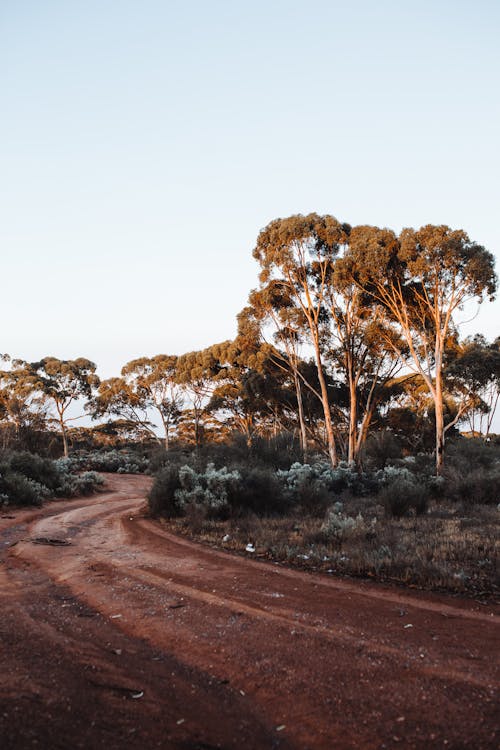 River Needham, MA ThM queeries the Tanakh reading.
River Needham, MA ThM queeries the Tanakh reading.Tanakh: 2 Samuel 5:1-5, 9-10
All the tribes of Israel came to David at Hebron and said, “We are your own flesh and blood. Long before now, when Saul was king over us, it was you who led Israel in war; and the Becoming One said to you: You shall shepherd My people Israel; you shall be ruler of Israel.” All the elders of Israel came to the king at Hebron, and King David made a pact with them in Hebron before the Becoming One. They anointed David king over Israel. David was thirty years old when he became king, and he reigned forty years. In Hebron he reigned over Judah seven years and six months, and in Jerusalem he reigned over all Israel and Judah thirty-three years.
[...]
David occupied the stronghold and renamed it the City of David; David also fortified the surrounding area, from the Millo inward. David kept growing stronger, for the Becoming One, the God of Angel Armies, was with him.
Queeries for the text:
Who else rules instead of the king/queen?
What is missing from this text?
Who else has asked for a ruler?
Who is God with today?
Who rules over the u.s.?
Who wrote this text?
-----
Rev. Emily E. Ewing queeries the Gospel reading.
Gospel: Mark 6:1-13
Jesus left that place and came to his hometown, and his chosen family followed him.
2On the sabbath Jesus began to teach in the
synagogue, and many who heard him were astounded. They said, “Where did
this man get all this? What is this wisdom that has been given to him?
What deeds of power are being done by his hands!
3Is not this the carpenter, the son of
Mary and sibling of James and Joses and Judas and Simon, and are not his
sisters here with us?” And they took offense at Jesus.
4Then Jesus said to them, “Prophets are
not without honor, except in their hometown, and among their own kin,
and in their own house.”
5And Jesus could do no deed of power there, except that he laid his hands on a few sick people and cured them.
6And he was amazed at their unbelief.
Then Jesus went about among the villages teaching.
7He called the twelve and began to send them out two by two, and gave them authority over the unclean spirits.
8Jesus ordered them to take nothing for their journey except a staff; no bread, no bag, no money in their belts;
9but to wear sandals and not to put on two tunics.
10He said to them, “Wherever you enter a house, stay there until you leave the place.
11If any place will not welcome you and
they refuse to hear you, as you leave, shake off the dust that is on
your feet as a testimony against them.”
12So the twelve went out and proclaimed that all should repent.
13They cast out many demons, and anointed with oil many who were sick and cured them.
Queeries for the text:
Where did Jesus leave?
Who takes offense at new wisdom?
What keeps us from deeds of power?
Who takes nothing today?
Who provides hospitality?
What happens when you shake off dust?
From what should we repent?
What are your queeries?
Sunday, February 14, 2021
Queerying Ash Wednesday
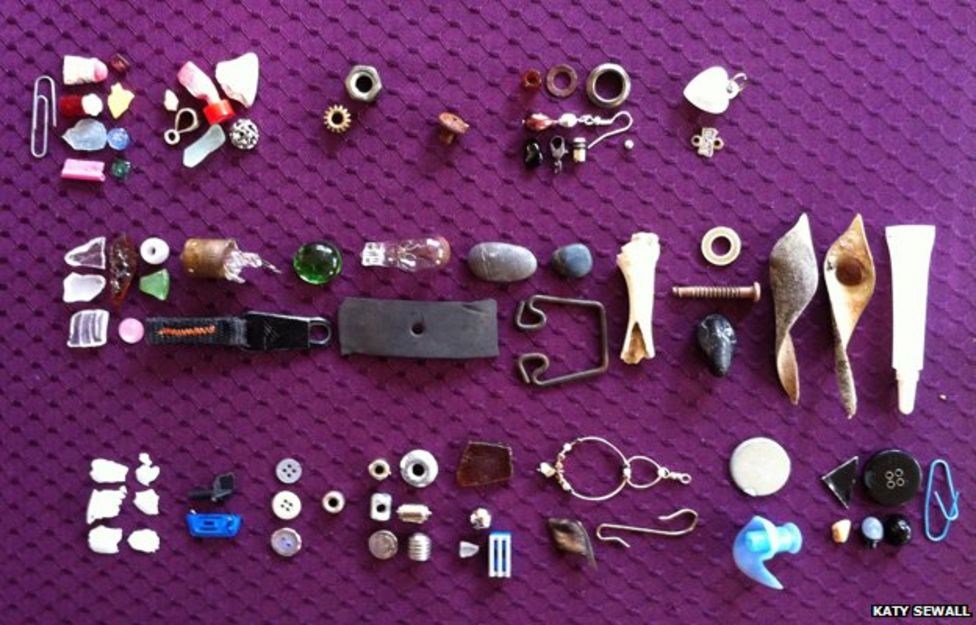
River Needham, MA queeries the Tanakh reading.
Tanakh: Joel 2: 1-2, 12-17
“Blow a horn in Zion, sound an alarm on my holy mount! Let all dwellers on earth tremble, for the day of the Becoming One has come! It is close—a day of darkness and gloom, a day of densest cloud spread like soot over the hills. A vast, enormous horde — nothing like it has ever happened, and it shall never happen again through the years and ages.
[...]
“Yet even now”—says the Becoming One— “Turn back to me with all your hearts, and with fasting, weeping, and lamenting.”
Rend your hearts rather than your garments, and turn back to the Becoming One your God. For Ze is gracious and compassionate, slow to anger, abounding in kindness, and renouncing punishment.
Who knows but Ze may turn and relent, and leave a blessing behind for meal offering and drink offering to the Becoming One your God?
Blow a horn in Zion, solemnize a fast, proclaim an assembly!
Gather the people, bid the congregation purify themselves. Bring together the old, gather the babes and breastfeeding children; let the bridegroom come out of his chamber, the bride from her canopied couch.
Between the portico and the altar, let the priests, the Becoming One's ministers, weep and say: “Oh, spare Your people, Becoming One! Let not Your possession become a mockery, to be taunted by nations! Let not the peoples say, ‘Where is their God?’”
-----
5“And whenever you pray, do not be like the hypocrites; for they love to stand and pray in the synagogues and at the street corners, so that they may be seen by others. Truly I tell you, they have received their reward. 6But whenever you pray, go into your room and shut the door and pray to your Father who is in secret; and your Father who sees in secret will reward you.
16“And whenever you fast, do not look dismal, like the hypocrites, for they disfigure their faces so as to show others that they are fasting. Truly I tell you, they have received their reward. 17But when you fast, put oil on your head and wash your face, 18so that your fasting may be seen not by others but by your Father who is in secret; and your Father who sees in secret will reward you.
19“Do not store up for yourselves treasures on earth, where moth and rust consume and where thieves break in and steal; 20but store up for yourselves treasures in heaven, where neither moth nor rust consumes and where thieves do not break in and steal. 21For where your treasure is, there your heart will be also.”
Sunday, January 17, 2021
Queerying 3rd after Epiphany B
 River Needham, MA queeries the Tanakh reading.
River Needham, MA queeries the Tanakh reading.
The word of the Becoming One came to Jonah a second time: “Go at once to Nineveh, that great city of mine, and preach to it.” Jonah went at once to Nineveh in accordance with the Becoming One’s command. Nineveh was an enormously large city a three days’ walk across. Jonah started out and made his way into the city the distance of one day’s walk, and proclaimed: “Forty days more, and Nineveh shall be overthrown!” The people of Nineveh believed God. They proclaimed a fast, and great and small alike put on sackcloth.
[...]
God saw what they did, how they were turning back from their evil ways. Then, God renounced the punishment She had planned to bring upon them, and did not carry it out.
Queeries for the text:
What does God's word sound like?
What does preaching look like?
Does God speak Hebrew? What does a Hebrew command look like?
Wednesday, December 16, 2020
Queerying Advent 4B
River Needham, MA queeries the Tanakh reading.
Tanakh: 2 Samuel 7:1-11, 16
When the king was settled in his palace and the Becoming One had granted him safety from all the enemies around him,
the king said to the prophet Nathan: “Here I am dwelling in a house of cedar, while the Ark of the Becoming One abides in a tent!”
Is safety ongoing? Why or why not?
What does it mean to be live in a tent?
Why choose to live in a tent? Who suffers when living in a tent?
What is missing?
What has become of David's House?















